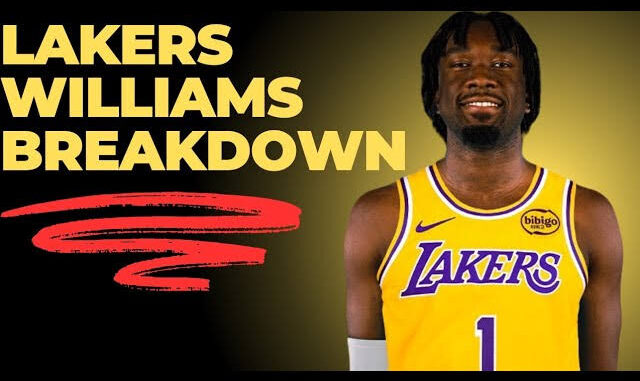
The Biggest Beneficiary of the Failed Mark Williams Trade Could Help the Lakers Avoid a Catastrophe
The NBA trade deadline often brings high-stakes negotiations, unexpected twists, and potential game-changing deals. One such situation recently unfolded with the Los Angeles Lakers and Mark Williams, a promising young center. While the trade ultimately fell through, its failure may have had unintended positive consequences. In fact, the biggest beneficiary of this collapsed deal could be the key to preventing a disastrous season for the Lakers. Whether it be a current player stepping up, a front office adjustment, or a shift in team strategy, the Lakers may have dodged a bullet and found a new path forward.
A Potential Mistake Avoided
The Lakers, known for their aggressive pursuit of talent, have often taken risks in trades. While Mark Williams is an intriguing young player with defensive prowess and rebounding ability, his fit within the Lakers’ system was questionable. If the trade had gone through, the Lakers might have given up key assets, including draft capital or valuable role players, for an unproven talent. Given their current struggles, losing depth or chemistry could have accelerated their downfall rather than providing the boost they were seeking.
Furthermore, the financial implications of such a trade could have placed additional strain on the team’s already tight salary cap situation. With the new Collective Bargaining Agreement (CBA) making roster flexibility more critical than ever, an ill-advised trade could have left the Lakers with fewer options for improvement. In hindsight, the failed deal may have spared them from a move that could have done more harm than good.
The Biggest Beneficiary: A Player Poised to Step Up
One of the most significant effects of a failed trade is the impact on the players already on the roster. The biggest beneficiary could be a player who was previously overlooked or whose role was about to be diminished. For the Lakers, this could mean more opportunities for a player like Jaxson Hayes, who has shown flashes of potential as a rim protector and lob threat. With Williams out of the picture, Hayes may now receive extended minutes and the chance to solidify his place in the rotation.
Similarly, Anthony Davis, the Lakers’ defensive anchor, may benefit from the failed trade by maintaining his role as the primary interior presence without the disruption of integrating a new center. While Davis has expressed a preference for playing power forward at times, his dominance at the center position has been undeniable. Instead of adjusting to Williams, the Lakers can continue optimizing their schemes around Davis’ strengths.
A Shift in Strategy Could Save the Season
Beyond individual players, the Lakers’ front office may also be the biggest beneficiary of the trade falling through. General Manager Rob Pelinka and his team now have an opportunity to reassess their approach to roster construction. Instead of making a rushed move for a developing center, they can explore alternative ways to improve the team, whether through smaller trades, free-agent signings, or internal development.
Additionally, this could push the coaching staff to make strategic adjustments rather than relying on external solutions. Darvin Ham may need to experiment with different lineups, maximize existing talent, and refine defensive schemes to address the team’s weaknesses. Sometimes, the best solution is not an immediate trade but rather a smarter use of available resources.
Conclusion
While missing out on Mark Williams may have initially seemed like a setback, it could ultimately be a blessing in disguise for the Lakers. Whether it means more opportunities for existing players, avoiding a risky trade, or forcing a more thoughtful approach to team improvement, the failed deal may have helped the Lakers dodge a major mistake. In a season filled with challenges, this could be the moment that saves them from disaster and sets them on the right path moving forward.
Be the first to comment